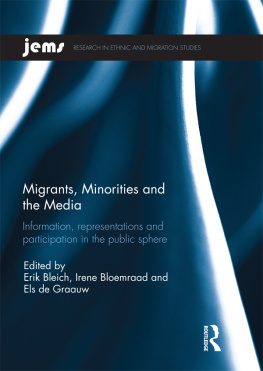First published in 1978 by George Allen & Unwin (Publishers) Ltd
This edition first published in 2016
by Routledge
2 Park Square, Milton Park, Abingdon, Oxon OX14 4RN
and by Routledge
711 Third Avenue, New York, NY 10017
Routledge is an imprint of the Taylor & Francis Group, an informa business
1978 George Allen & Unwin (Publishers) Ltd
All rights reserved. No part of this book may be reprinted or reproduced or utilised in any form or by any electronic, mechanical, or other means, now known or hereafter invented, including photocopying and recording, or in any information storage or retrieval system, without permission in writing from the publishers.
Trademark notice: Product or corporate names may be trademarks or registered trademarks, and are used only for identification and explanation without intent to infringe.
British Library Cataloguing in Publication Data
A catalogue record for this book is available from the British Library
ISBN: 978-1-138-93422-1 (Set)
ISBN: 978-1-315-66966-3 (Set) (ebk)
ISBN: 978-1-138-93762-8 (Volume 9) (hbk)
ISBN: 978-1-315-67618-0 (Volume 9) (ebk)
Publishers Note
The publisher has gone to great lengths to ensure the quality of this reprint but points out that some imperfections in the original copies may be apparent.
Disclaimer
The publisher has made every effort to trace copyright holders and would welcome correspondence from those they have been unable to trace.
Immigrants and Minorities in British Society
edited by
Colin Holmes
First published in 1978
This book is copyright under the Berne Convention. All rights are reserved. Apart from any fair dealing for the purpose of private study, research, criticism or review, as permitted under the Copyright Act, 1956, no part of this publication may be reproduced, stored in a retrieval system, or transmitted, in any form or by any means, electronic, electrical, chemical, mechanical, optical, photocopying, recording or otherwise, without the prior permission of the copyright owner. Enquiries should be addressed to the publishers.
George Allen & Unwin (Publishers) Ltd, 1978
ISBN 0 04 942160 3 Hardback
Printed in Great Britain
in 10 on 11 point English
at The Lavenham Press Ltd, Lavenham, Suffolk
by Colin Holmes
An historian concerning himself with immigration into America is likely to be embarrassed by the rich and plentiful nature of his source material. The same would hardly be true for anyone studying the history of immigration into Britain and the formation here of racial and ethnic minorities, visible on account of their physical and/or cultural traits and sharing a consciousness related to these characteristics.1 There are, of course, a variety of contact situations which can occur between racial and ethnic groups and in the British case attention has been generously bestowed upon migrant superordination situations in which the migrating group was superior in terms of organisation and technology to the indigenous population.2 In short, an emphasis has been placed upon the experiences of colonialism or imperialism. Even so, many studies which concentrated on such matters and the relationships which ensued between the British and a wide variety of other peoples passed quickly over the nature of the ideas which justified and rationalised even if they did not cause this process of domination and expansion.3 We are only just starting to discover the different attitudes which emerged in the course of this particular form of contact.
British experience of Strangers through the immigration and settlement of racial and ethnic groups has received far less attention than colonial and imperial contact. Yet it has been pointed out that the British are clearly among the most ethnically composite of the Europeans4 and there is an abundance of material from Roman times to the present day to indicate how mixed British society is and the various infusions it has experienced. Some immigrants like Marx, Mazzini and Stepniak came as political refugees, others like Somersett arrived as slaves, visible reminders of an expanding metropolitan influence, and still others, such as the German influx of the late nineteenth century, entered as businessmen or workers, eager to employ their capital, entrepreneurial talent or labour in a different setting.5 Individuals or groups often stayed in Britain, put down their social roots and remained as members of distinctive minorities or, in some instances, merged themselves over time with varying degrees of success into the warp and weft of British life.
The impact of such newcomers on British society has undoubtedly been significant. If we examine the economic or material contribution which they have made in modern times we might refer to the financial activity of the Huguenots as well as their involvement in the London silk industry, the Jewish role in the development of merchant banking, textiles and stores,7 and the importance of Asian and West Indian labour to certain sectors of the contemporary British economy.8 If we consider these in conjunction with the enrichment of British life in terms of artistic sponsorship9 and achievement,10 as well as various contributions to political life, it is soon apparent that a wide range of influences needs to be acknowledged.11
Some of this activity, it needs to be recognised, has not been universally welcomed. Success in business could arouse the hostility of those who regarded themselves as exploited by the capitalist system, and if particular capitalists were also racially or ethnically visible a double-edged weapon could be used against them. And when, as was sometimes the case, they operated in high risk-high reward situations or on the fringes of respectable activity, hostility could be intensified even further. At times workers from immigrant and minority backgrounds also encountered opposition, some of which resulted from a conflict of interests which did not turn upon racial or ethnic origin,12 while some reflected an antipathy or prejudice against newcomers, in situations where it was difficult if not impossible, to allot responsibility for particular social problems and conditions.13 It was not unknown, of course, for such hostility to be seized upon and exploited for political purposes.14










